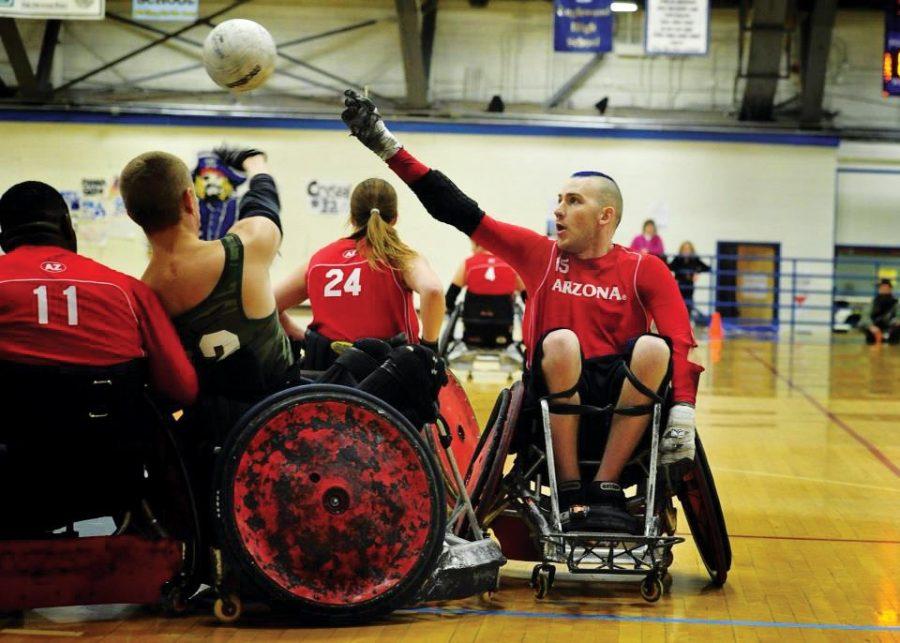In sports, you play to win. Quad rugby is no different.
Flying across the court, smashing into opponents and yelling signals to one another, the members of the UA co-ed team convert what seems like chaos into elegant strategy. They play at a demanding pace despite having little to no use of their legs and limited use of their hands and arms.
“It’s like a violent game of chess,” said Eric Baker, a communication junior on the team.
Quad rugby, also known as wheelchair rugby or murderball, is played on a regulation basketball court. The object is to carry a ball between a pair of cones positioned on each end line.
This seemingly simple setup leads to a complex, rough-and-tumble game. Competitors are constantly colliding in their modified wheelchairs, and injuries are not uncommon.
“There’s a lot of bruises and bumps, smashed fingers, people falling over,” said team captain Chelsea Falnes, a special education sophomore. “It’s quite a sight.”
Bruises notwithstanding, the team had a relatively unblemished season and will play for a national title this weekend in Louisville, Ky.
Falnes, who suffers from an undiagnosed condition that causes her skeleton and muscles to progressively weaken, said she’s excited that the team gets to vie for a national championship.
“I’m very proud of them,” said head coach Bryan Barten. “They’re a very dedicated group, and this is their reward.”
The team is sponsored by the Adaptive Athletics program, a component of the Disability Resource Center that aims to give disabled students the opportunity to compete in a variety of sports. The largest program of its kind in the country, Adaptive Athletics sponsors wheelchair basketball, tennis and track, among other sports, Barten said.
On the court and off, the quad rugby team is a close-knit group.
“Our team really is a family,” said Allison Cardwell, a pre-law sophomore. The team frequently spends time together outside of the game, which strengthens their chemistry on the court, she
said.
Baker also spoke highly of the team dynamic. He said that most of the players are from other states so that when they came to the UA, they all shared the uneasy feeling of being in a new place, along with their disabilities.
“You feel all alone,” he said, “but then the team becomes a support structure. It’s comforting.”
Baker was paralyzed during his senior year in high school after diving into a swimming pool and hitting his head on the bottom. However, his injury doesn’t bring him down.
“I can’t complain because it brought me here, to this university and to the team,” Baker said. “I love it here.”









